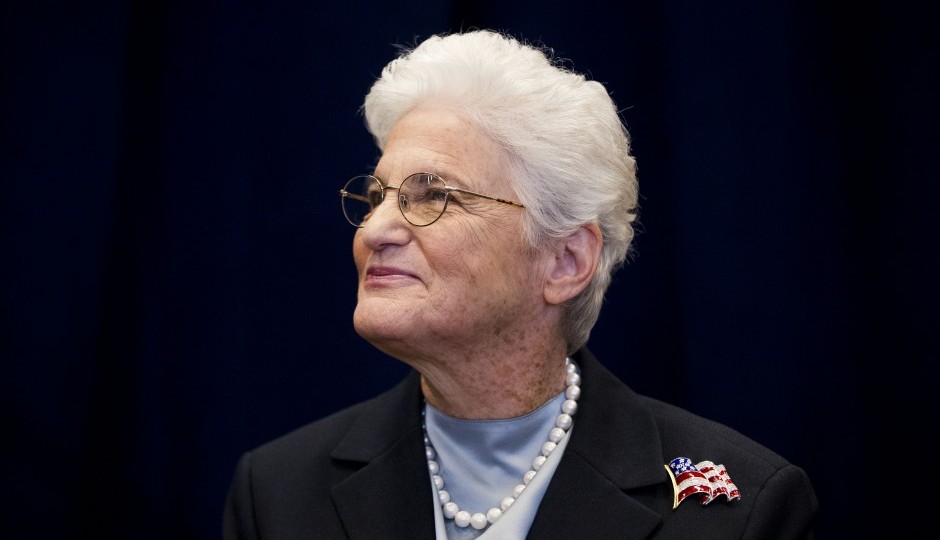Is Sexism Hurting Lynne Abraham?
When mayoral candidate Lynne Abraham collapsed this month on live television, the Daily News asked, “Is this the end for Lynne Abraham?” The Inquirer wrote that her fainting spell was “a serious setback for a candidate who has already had to fend off questions about her age.” Citified, too, said the incident “was, for Abraham’s electoral prospects, a potentially devastating moment.”
During an interview with Citified, Abraham argued that the news coverage of her collapse was amplified because she is a woman. Abraham is the only woman running for mayor in the Democratic primary race, and if elected, she would be the first female mayor in the history of Philadelphia.
“They treated me differently because I’m a woman,” she says. “I believe that they wouldn’t have treated it half as excited as if any one of the other male candidates didn’t drink water and had a fainting spell.”
Does Abraham have a point?
Abraham, who is 74, says that’s not the only time she’s encountered sexism in the race. She believes questions about whether she is too “old-school” to lead a contemporary Philadelphia are sexist in nature.
“That’s a silly question,” she says. “It is. Because men who have experience are looked upon very well, as grounded and all kinds of things.”
More generally, she says the unfair treatment of women is a problem in Philadelphia politics. Not enough women run for office here partly due to sexism, she says, and a woman has never led the Democratic City Committee. “The fact that no woman has ever been elected to head of the City Committee with all the capable women that are in the Democratic Party is pretty stunning to me.”
Before we wade into the question of whether Abraham has been a victim of sexism in the mayor’s race, it’s worth noting that sexist attacks can seriously hurt a female candidate’s chances.
In a poll sponsored by the Women’s Media Center and other women’s groups, 400 likely voters were asked to listen to garden-variety descriptions about two hypothetical Congressional candidates, “Jane Smith” and “Dan Jones.” Another 400 voters heard the basic descriptions as well as a discussion about the candidates, in which the woman was described as an “ice queen,” “mean girl” and, eventually, a “prostitute.”
USA TODAY reported on the results:
The female candidate lost twice as much support when even the mild sexist language was added to the attack. Support for her initially measured at 43 percent fell to 33 percent after the policy-based attacks but to 21 percent after the sexist taunts. The drop was significant among both men and women, those under 50 and over 50, and those with college educations and without.
The sexist language undermined favorable perceptions of the female candidate, leading voters to view her as less empathetic, trustworthy and effective.
So sexism can have a real impact. But is it impacting Abraham in particular?
Abraham has not, as far as I know, been referred to in the mainstream media as anything close to an “ice queen,” “mean girl” or “prostitute.” She also hasn’t endured the kind of blatantly sexist attacks that Hillary Clinton has (a GOP strategist said of Clinton on CNN, “I don’t need her to drown me in estrogen every time she opens her mouth”).
But sexism can sometimes be more insidious than that. For instance, it can manifest in a journalist’s unnecessary descriptions of a female candidate’s physical attributes. “Even when positive, appearance coverage triggers something in voters that they don’t like and the respect for women candidates goes down,” Rachel Larris of the Women’s Media Center told the Columbia Journalism Review.
Abraham is referring to a similar kind of subtle, and often hard-to-prove, sexism. If one of Abraham’s opponents — say, City Councilman Jim Kenney or state Sen. Anthony Williams — collapsed on live TV, would the press ask if their candidacy was kaput? Well, maybe not. But would the press ask that question if a male candidate in his 70s fainted? I think so.
Abraham’s other argument is that a comparable male candidate’s experience would be described in a more positive light than hers has been. I think she might have a point there. Abraham, who served as the District Attorney of Philadelphia for 19 years, has been called “old-school” numerous times (including by Citified). The suggestion is often that she may not be the right person to lead the city in 2015.
Part of that is due to the fact that Abraham was once a proud “tough-on-crime” warrior, and the city has since shifted to a more “smart-on-crime” approach. She was also called “the deadliest D.A.” by the New York Times in the 1990s because she sought the death penalty so often.
But she has since embraced marijuana decriminalization and some police reforms, as well as other positions that could hardly be described as “old-school,” such as the elimination of Councilmanic prerogative. And perhaps those issues, as well as her experience, don’t get as much attention as they should. She certainly isn’t the only mayoral candidate who has held different views in the past.
If you believe sexism is hurting Abraham, the former District Attorney is doing the right thing by striking back.
As USA TODAY reported, the study looking at voters’ attitudes on female candidates found that “responding directly helped the women candidates regain support. The rebound occurred both after a mild response — the female candidate calling the discussion ‘inappropriate’ and ‘meritless’ and turning back to issues — and after a more direct counterattack that decried ‘sexist, divisive rhetoric’ as damaging to ‘our political debate and our democracy.'”
